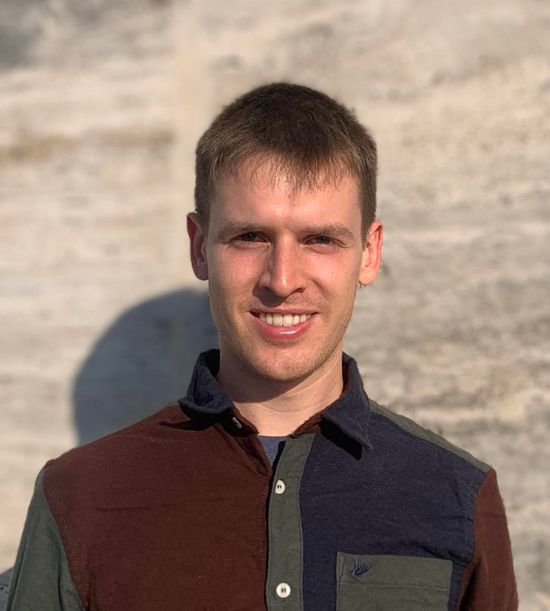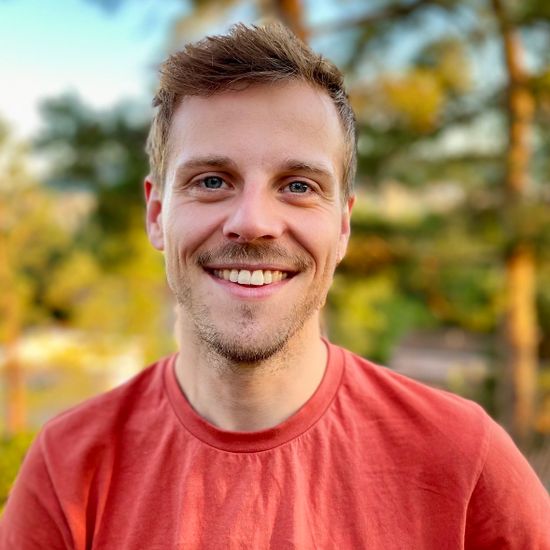Beim Laden des Videoplayers ist ein Fehler aufgetreten, oder es dauert lange, bis er initialisiert wird. Sie können versuchen, Ihren Browser-Cache zu leeren. Bitte versuchen Sie es später noch einmal und wenden Sie sich an den Helpdesk, wenn das Problem weiterhin besteht.
Quantum computers are particularly powerful for simulating other quantum systems. This is highly relevant for many problems in the natural sciences such as material and drug design. As even the largest supercomputers struggle to perform the necessary simulations, quantum computation could revolutionize these industries.
In this course, Max, Julian, Alex, and Laurin show how you can use quantum algorithms to study the properties of molecules. The course is aimed at university-level students or professionals with a technical background. Prior knowledge of quantum computing is helpful but not necessary.
Kurssprache: English
Deutsch, English
Expert, Quantum Computing
Kursinformationen
Computational chemistry and many-body physics are at the core of some of the hardest challenges in natural science, ranging from material design to finding catalysts and even creating new drugs for medications. Today, a large amount of the world’s supercomputing power is devoted to computer simulations of the involved chemical processes. However, these methods are computationally expensive due to the exponential scaling of the underlying quantum problem.
Crucially, simulating such quantum systems is a natural application of the emerging technology of quantum computers. With their intrinsically quantum mechanical operations, quantum computers offer novel approaches to computing various static and dynamical properties of chemical systems.
This course is aimed at professionals and students that are interested in applying quantum computing to solve problems in the natural sciences.
In this course, you will learn how to use quantum computers to calculate properties of molecules and simulate their dynamics. For example, you will learn about algorithms to compute ground and excited state energies and simulate molecular dynamics. As an outlook, we also consider the challenges involved with running these algorithms on current quantum computing devices. After the course, you will be able to understand state-of-the-art research in quantum computing for the natural sciences.
This course consists of short study videos accompanied by test questions and a final exam. The workload for the course is approximately 3-5 hours per week, depending on prior knowledge.
The prerequisites for the course are basic knowledge of quantum information and quantum computing. Knowledge of quantum chemistry is not required but may help you better appreciate some of the course material.
What you'll learn
- Mapping the quantum description of molecules to the qubits of a quantum computer
- Computing ground state and excited state energies of molecules with quantum algorithms
- Simulating molecular dynamics on quantum computers
- Challenges and prospects of quantum simulation
- Common error sources and how to mitigate them
Attention: This course is currently in self-study mode, in which you do not have access to graded assignments/exams. Therefore, we can only issue you a certificate of participation.
Für wen dieser Kurs gedacht ist
- Students
- Professionals in computational chemistry
- Quantum computing enthusiasts
Lernmaterial
Welcome to the course
Week 1:
In the first week of this course we will learn the basic concepts of quantum chemistry applications and how to use quantum algorithms to determine the ground state of molecules. We start with a review of the Schrödinger equation, the fundamental equation of quantum dynamics. Next, we will introduce the second quantization notation which we can later use to transform our quantum chemical problem into its qubit representation. We will then get to know the variational quantum eigensolver, a hybrid quantum-classical algorithm for finding the minimum eigenvalue (or in this case the ground state energy) of our problem. We conclude the week with a brief introduction to embedding routines which enable the treatment of larger molecular systems than we could otherwise fit on state-of-the-art quantum computers.Week 2:
The second course week will delve deeper into tackling problems from the natural sciences with quantum computers. In the first week, we learned some basics and focussed on ground-state calculations. These are not the only kind of problems we face in computational quantum chemistry and physics, however. The computation of excited states and time-dependent properties can often be much more complicated. Therefore, devising clever quantum algorithms for these tasks is crucial. This will be our focus for the beginning of the second week. Another aspect we have not discussed so far is how to actually extract information from our quantum computation and we will continue with discussing how to efficiently measure expectation values. Lastly, current quantum processors are far from error-free. In fact, they come with many different sources of error, or noise as we say. These can potentially ruin any calculation and vast research efforts are spent on finding ways to work around this noise. In our last lecture, we talk about such methods to work around device errors. The second week concludes with an interview of Dr. Ivano Tavernelli, discussing what challenges we researchers are facing and giving an outlook on how we might be able to make use of quantum technologies in the future.Final Exam
I like, I wish:
Please take some time to leave your feedback on this course. Thank you!
Für diesen Kurs einschreiben
Lernende
Bewertungen
Der Kurs wurde mit durchschnittlich 4.23 Sternen bei 252 abgegebenen Stimmen bewertet.
Anforderungen für Leistungsnachweise
- Den Leistungsnachweis erhält, wer in der Summe aller benoteten Aufgaben mindestens 50% der Höchstpunktzahl erreicht hat.
- Die Teilnahmebestätigung erhält, wer auf mindestens 50% der Kursunterlagen zugegriffen hat.
- Einen Open Badge erhalten Sie, indem Sie den Kurs abschließen.
Mehr Informationen finden Sie in den Richtlinien für Leistungsnachweise.
Dieser Kurs wird angeboten von

Max Rossmannek is a Ph.D. candidate working jointly between the Quantum Computational Science group at IBM Quantum, IBM Research - Zurich, and the University of Zurich. His research focuses on the integration of quantum computing algorithms into classical computational quantum chemistry routines. He is also one of the core developers of Qiskit Nature, an open source package for the simulation of natural science problems on quantum computers.
He received a B.Sc. and M.Sc. degree in Computational Science and Engineering from ETH Zurich. During his studies he focused on chemistry applications and later specialized in Quantum Simulation.

Julian Schuhmacher is a Ph.D. candidate working jointly between the Quantum Computational Science group at IBM Research Europe - Zurich and the École Polytechnique Fédérale de Lausanne (EPFL). His research focuses on the development of hybrid quantum-classical algorithms for many-body quantum systems.
He holds a B.Sc in physics from the University of Bern, and an M.Sc in physics from ETH Zurich.

Alexander Miessen is a Ph.D. candidate working jointly between the Quantum Computational Science group at IBM Quantum, IBM Research - Zurich, and the University of Zurich. His research focuses on the study of quantum algorithms for quantum dynamics and their application to time-dependent problems in many-body quantum systems.
He holds a B.Sc. in physics from Humboldt University Berlin and an M.Sc. in physics from ETH Zurich.

Laurin Fischer is a Marie Skłodowska–Curie PhD Fellow of the European Training Network MOQS – Molecular Quantum Simulations working jointly between the Quantum Computational Science group at IBM Research Europe — Zurich and the Theory and Simulation of Materials group at EPFL in Lausanne. His research focuses on bridging the gap towards large-scale chemistry applications on superconducting qubit hardware, both on the algorithmic and on the hardware level. He holds a B.Sc. and M.Sc. degree in Physics from Karlsruhe Institue of Technology and Heidelberg University, respectively. During his studies, he focused on atomic, molecular and optical physics and their applications to quantum information technologies.